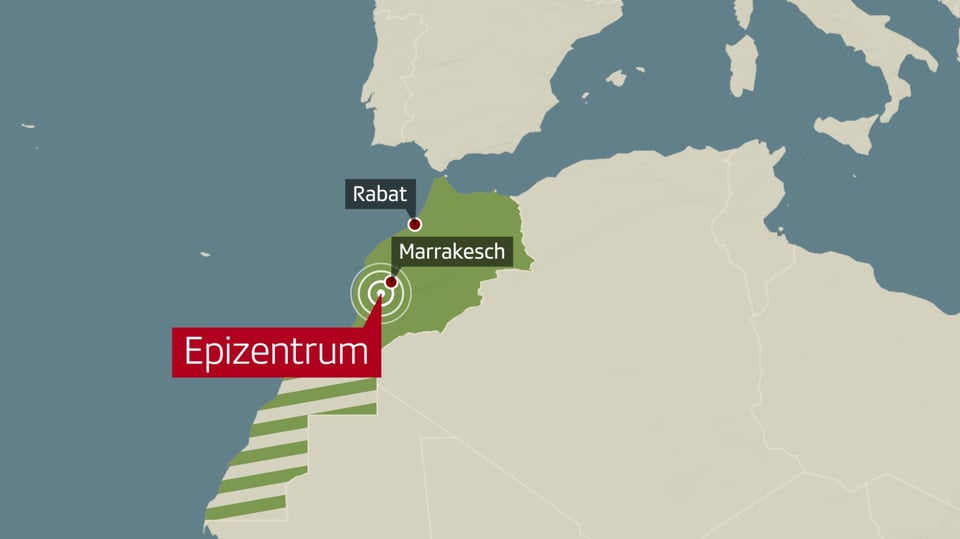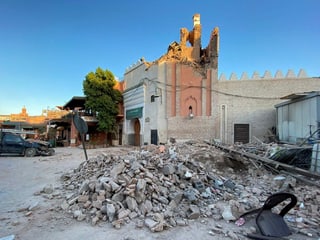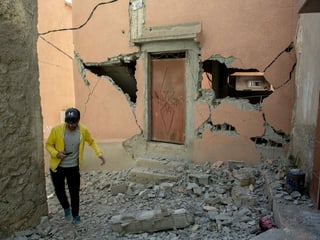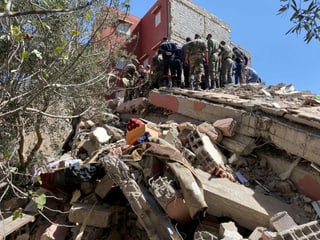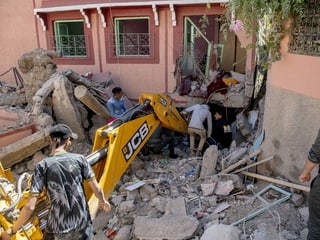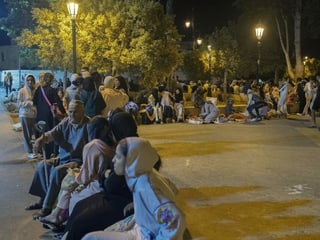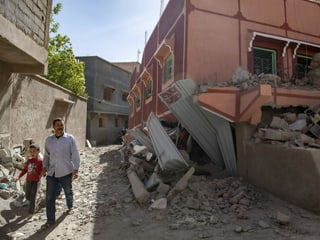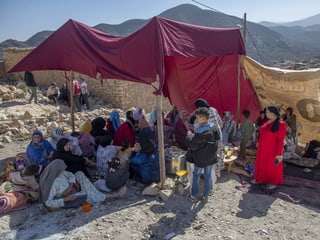Contents
A devastating earthquake killed at least 2,000 people and caused severe damage in the North African country. An overview.
That happened: The earthquake occurred on Friday at 11:11 p.m. local time. According to the US Earthquake Observatory it had a magnitude of 6.8, according to the Helmholtz Center Potsdam 6.9. The epicenter was a good 70 kilometers southwest of Marrakech in the Atlas Mountains, at a depth of 18.5 kilometers. Shortly afterwards there was an aftershock measuring 4.9.
Legend:
The epicenter of the earthquake is southwest of Marrakesh.
SRF
The victims: According to preliminary figures, at least 2,012 people died, as the Interior Ministry announced on state television. 2,059 people were injured, around 200 of them seriously. It is feared that the number of victims will continue to rise. Rescue workers are still looking for survivors – and remote regions have not yet been reached. The quake was the deadliest in Morocco in several decades.
The damages: According to Morocco’s Interior Ministry, most of the damage occurs outside the cities. In large areas from the Atlas Mountains to Marrakesh, buildings and cultural monuments were partly completely destroyed. The famous red walls of Marrakesh’s old town, a UNESCO World Heritage Site, were also damaged.
Swiss solidarity: Federal President Alain Berset expressed his condolences. On the short message service X, formerly Twitter, he wrote that Switzerland was in solidarity with Morocco. “Our thoughts are with the Moroccans affected by this terrible earthquake.”
Switzerland sends help: The Federal Department of Foreign Affairs (EDA) wants to make an offer of assistance to Morocco. The details are still being worked out. The help will be tailored to local needs. The FDFA said they are in regular contact with the Swiss embassy in Rabat and the responsible authorities in Morocco.
Further offers of help: The preparations by the Technical Relief Agency (THW) are underway, said German Interior Minister Nancy Faeser to the German Press Agency. “As soon as we have more information about what help is needed, we can send our specialists to Morocco.” According to a THW spokesman, rescue teams or water treatment plants are conceivable. Israel also wants to send rescue units to Morocco. All government authorities have been instructed to prepare to send an aid delegation, Prime Minister Benjamin Netanyahu’s office said. Spain, Portugal and the UK have also offered support. The United Nations and the EU are also promising help. EU Council President Charles Michel emphasized on X that Morocco was supported.
This is how the world reacts: There is great consternation over the catastrophe worldwide. Many heads of state expressed their condolences to those affected. These include Turkish President Recep Tayyip Erdogan, French President Emmanuel Macron, German Chancellor Olaf Scholz and US President Joe Biden. Pope Francis also spoke out. He prays for the deceased and the injured as well as those “who mourn the loss of their loved ones and their homes.”
